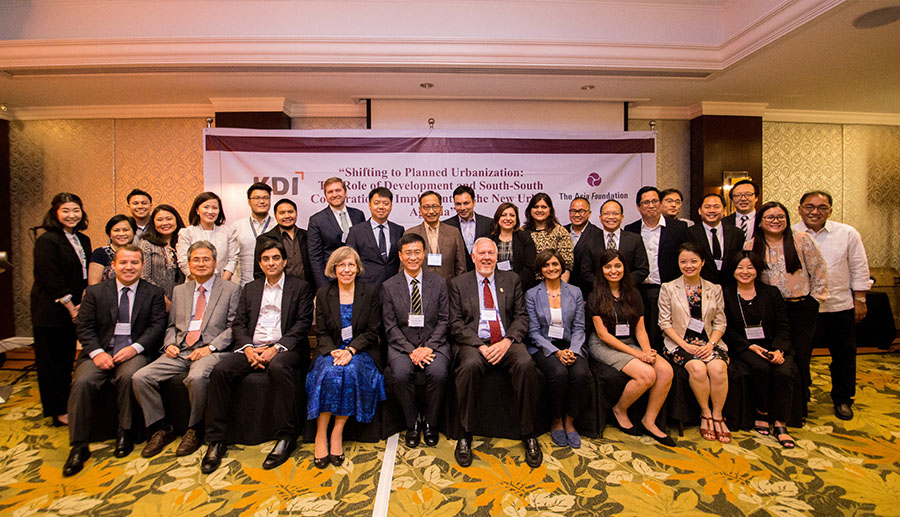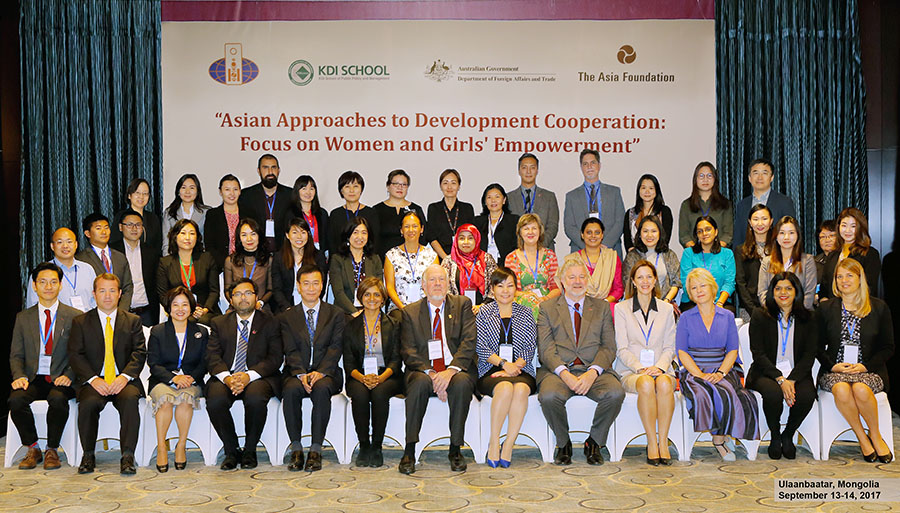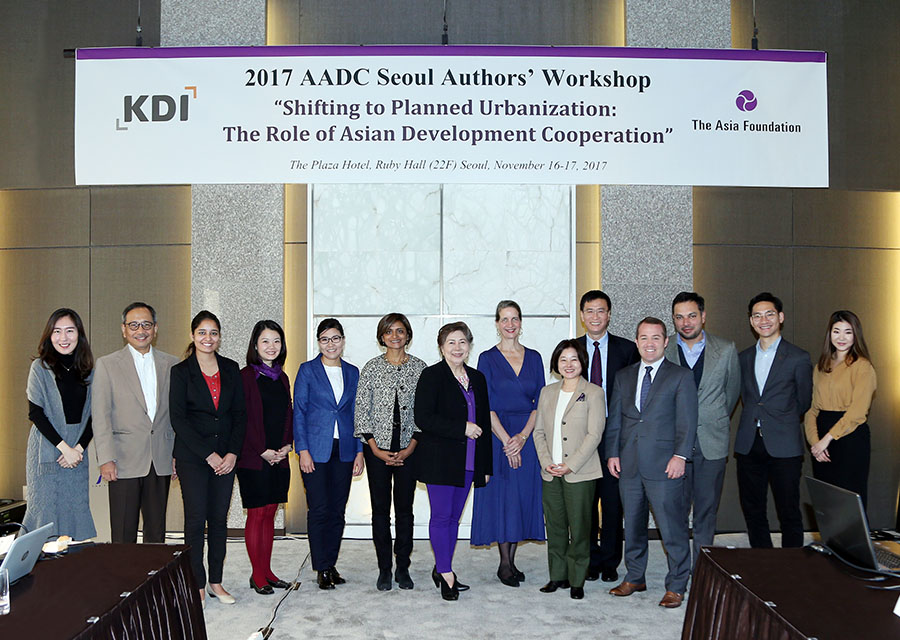2017 Programs
Asian Approaches to Development Cooperation
Asian Development Experts Convene to Discuss the Future of South-South Development Cooperation in Asia
Following the success of the last 6 years of collaboration between The Asia Foundation and the Korea Development Institute (KDI) to strengthen Asia’s emerging donors’ development effectiveness, the two organizations extended the Asian Approaches to Development Cooperation (AADC) project for an additional year, this time focusing on Sustainable Development Goal (SDG) 11. The first dialogue, held in Manila, the Philippines (May 11-12, 2017), featured planned urbanization and South-South cooperation. The second dialogue in Ulaanbaatar, Mongolia (September 13-14, 2017) focused on women and girls' empowerment and South-South cooperation, and was followed by an Authors' Workshop in Seoul (November 16-17, 2017) to enable focused discussions on the forthcoming publication "Shifting to Planned Urbanization: The Role of Asian Development Cooperation." A detailed description of each event can be found below.
Manila Dialogue
Rapid urbanization is increasingly recognized as one of the most important development issues shaping our world today. With cities now making up half the world's population, KDI and The Asia Foundation convened a dialogue in Manila from May 11-12, 2017 bringing urban development experts, city government officials, academic scholars, and specialists from multilateral agencies based in Asia for the 16th meeting of the Asian Approaches to Development Cooperation (AADC) dialogue. The annual AADC event is an ongoing series addressing how Asian countries' engagement in development and South-South cooperation is changing the global aid landscape and the development prospects for the region.
The meeting marks the 7th year of the Foundation's partnership with the Korea Development Institute (KDI) in organizing the AADC dialogue. Focusing on Sustainable Development Goal (SDG) 11, the Manila conference examined how Asian providers are addressing the challenges of urban planning, service delivery, and sustainable cities through their cooperation programs. Manila's unique and continuous urbanization experiences set the stage for a dynamic dialogue between experts from cities in Asia facing challenges of rapid urbanization, including Manila, Cebu, Beijing, Singapore, Jakarta, New Delhi, Seoul, and Bangkok, as well as representatives from UNDP, UN-Habitat, the Asian Development Bank (ADB), and the Asian Infrastructure Investment Bank (AIIB), who presented innovative programs aimed at addressing the challenges that cities face.
Highlights of the conference included a discussion on how China's Belt and Road Initiative, spanning across Asia, Europe, the Middle East, and Northern Africa will increase connectivity and Gross Domestic Product (GDP) for these regions. Other highlights centered on how public private partnerships are financing Asia's transport and infrastructure needs from Manila to Laos, and how an innovative mobile application-Safetipin developed in India to promote urban safety-is being shared with other cities in Asia.
The meeting included a site visit to Manila's Public-Private Partnership Center, during which the participants were introduced to the Duterte administration's "Build Build Build" infrastructure development program. President Duterte's strategy, which is part of the administration's economic agenda, dubbed as "Dutertenomics," hopes to address long-term issues by allocating 5.4% of the GDP to the initiative with over 60 infrastructure projects.

Ulaanbaatar Conference
Development experts, innovators, activists, and practitioners from governments, companies, academia, NGOs, and multilateral organizations across Asia, gathered in Ulaanbaatar from September 13th to 14th, 2017 for the 17th meeting of the Asian Approaches to Development Cooperation (AADC) dialogue series, jointly organized by The Asia Foundation, KDI School, the Australian Department of Foreign Affairs and Trade, and the Mongolian Ministry of Foreign Affairs. This year's dialogue discussed how Asian development and South-South cooperation is empowering women and girls. See more about the Ulaanbaatar conference here.
In previous years, AADC conferences have focused on the changing aid landscape, rising inequality and pro-poor growth, climate change mitigation and adaptation, social mobility, advancing South-South cooperation, and the role of NGOs and the private sector.

Authors' Workshop for Publication
Development specialists met in Seoul, Korea on November 16–17 to discuss papers and case studies being drafted for an edited volume tentatively titled Shifting to Planned Urbanization: The Role of Asian Development Cooperation, which draws from a May 2017 dialogue in Manila focused on the New Urban Agenda (SDG 11). Jointly produced by the Korea Develoment Institute and Asia Foundation as part of the Asian Approaches to Development Cooperation dialogue series, the forethcoming publication will include chapters on Asian-led development cooperation and knowledge sharing on planned urbanization. At the workshop, participants shared comments and critical analysis of each draft outline.
